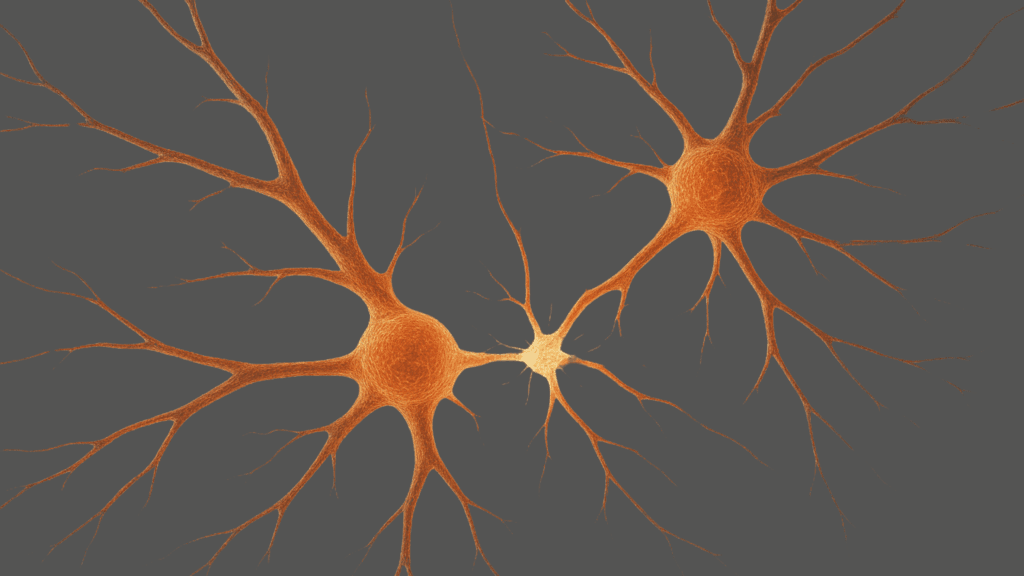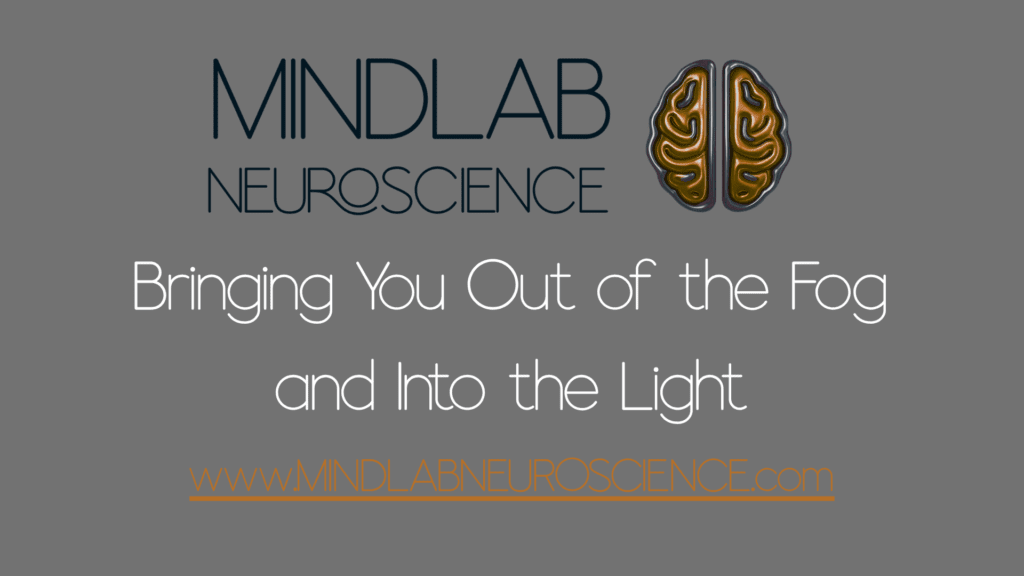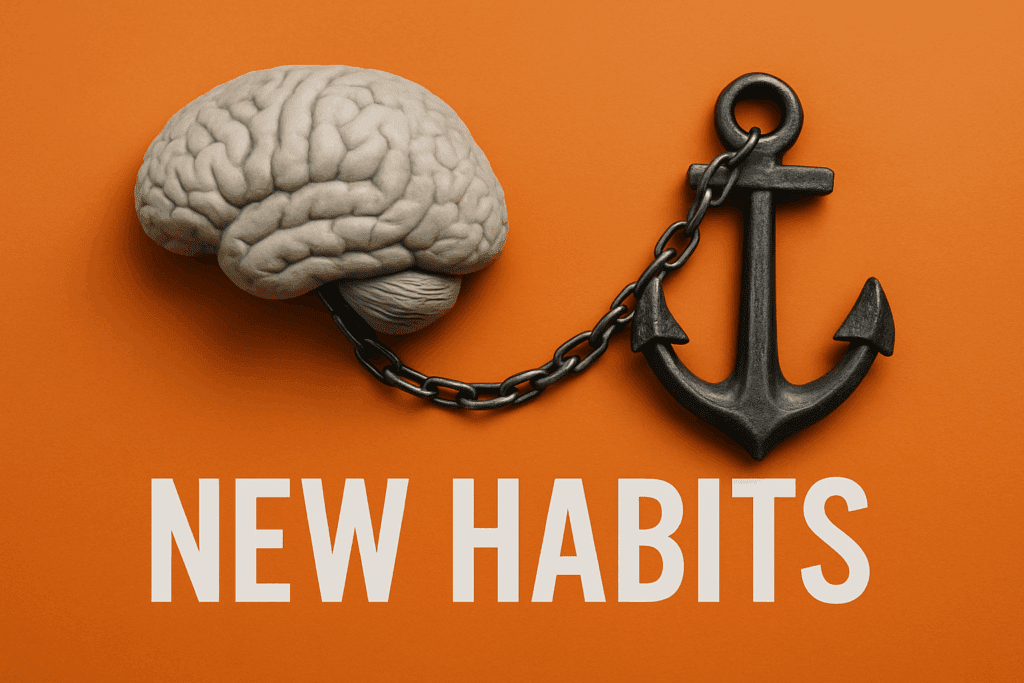🎧 Audio Version
Your Path From ADHD and Brain Fog to Real Clarity and Confidence
ADHD and brain fog can make each day feel impossible, wrapping even the simplest tasks in a thick mental haze that clouds your thinking and drains your energy before noon. The impact goes far beyond struggling to focus; it saps your motivation, leaving you questioning your abilities and doubting whether real progress is even possible.
You’re not forgetful or lazy, you’re navigating a profound neurological challenge that affects how your brain processes information, manages dopamine, and sustains attention through daily demands. Millions face this exact struggle, yet most suffer in silence, believing they simply aren’t capable enough or disciplined enough to overcome it.
But here’s the truth: ADHD and brain fog are not personal failures. They’re neurological realities that respond powerfully to science-backed interventions, personalized dopamine strategies, and breakthrough routines designed specifically for how your brain actually works. When you understand the root causes and apply targeted solutions, the fog lifts. Clarity returns. Motivation becomes real again. This comprehensive guide brings together cutting-edge neuroscience, the latest dopamine research, and proven strategies that have transformed lives.
You’ll discover exactly why traditional approaches fall short and how science-based treatment creates the lasting change you’ve been searching for. Your journey from feeling lost in endless fog to experiencing genuine focus and unstoppable confidence starts here, with knowledge, compassion, and a clear roadmap forward.
Real Stories From Everyday Life
For thousands, living with ADHD and brain fog means losing track of essentials, feeling behind, and facing constant frustration. Emma forgets important school deadlines even after multiple reminders, and Marcus finds himself apologizing for missed meetings despite trying every planner app. Some teens hide their struggles by joking about their “foggy brain” online, but the feeling is anything but funny when grades and relationships slip.
Small victories matter, whether it’s remembering a birthday, finishing a project, or just feeling fully present for a moment. Hearing these stories reminds us that ADHD and brain fog are real lived experiences, and there is genuine hope for making life more manageable and fulfilling.

Neuroscience in Everyday Language
ADHD and brain fog are rooted in distinctive brain architecture and neurochemical shifts that science can now explain and address. Dopamine shortages hijack the motivational drive, while executive function suffers from inefficient neural signaling between key brain regions. Many find that their brains crave excitement and novelty, making it nearly impossible to sustain repetitive routines without targeted support. Imaging reveals that ADHD brains process information at varying speeds, and even brief moments of rest can trigger mental hyperactivity that disrupts focus.
Real relief comes when individuals and families recognize that biology, not just attitude, underpins these mental struggles. This shifts frustration into focused problem-solving and provides access to customized strategies based on the actual functioning of the brain. The key difference between ADHD and usual brain fog is that ADHD involves persistent dopamine dysregulation and executive dysfunction, while typical brain fog is often situational and triggered by temporary factors like sleep loss or stress.
ADHD and Brain Fog: The Dopamine Connection
Dopamine is a central player in the daily mind games of ADHD and brain fog, influencing motivation, memory, and the ability to start or finish tasks. When levels are too low or jumpy, even the best intentions run dry, leaving you stuck and unmotivated in ways that feel beyond your control. Many people find their mental clarity suddenly returns during those rare dopamine surges, like when starting an exciting task or after physical activity that energizes the system. These bursts of focus show the tangible effect that correct stimulation and rewards have on clearing away fog.
Science now advises customizing routines to spark dopamine intentionally with movement, novelty, and creative pursuits that feed the brain’s reward system. Over time, this teaches the brain to rely on healthy triggers rather than fleeting, unsustainable bursts of energy. Individuals who master what brings out their dopamine sweet spot often report dramatic improvements in memory, focus, and enthusiasm for life itself.
Why Traditional Methods for ADHD and Brain Fog Often Fall Short
The reality is stark: standard therapies such as CBT, DBT, and talk therapy deliver some benefits for more superficial issues but fall flat for those with ADHD and brain fog. The deep frustration for many sufferers comes from working diligently in therapy, only to find their practical symptoms unchanged because core neurological issues go unaddressed. Countless readers have experienced the disappointment of reflecting on their experience and realizing that even skillful advice such as journaling, planning, and breaking tasks into steps cannot penetrate their mental barriers.
What differentiates real progress is science-based ADHD treatment. Medications such as stimulants or certain non-stimulants don’t just mask symptoms; they address the dopamine and executive function mismatches that underlie chronic fog and disorganization. The shift is profound: bursts of focus last longer, remembering details becomes possible, and organizing daily life moves from wishful thinking to reality. People describe feeling seen for the first time, as their treatment matches the true challenge and produces consistent, life-changing results.
Choosing a science-informed approach means finally feeling the clarity and motivation that traditional methods simply cannot unlock.

Triggers That Make Brain Fog Worse
ADHD and brain fog flare when sleep quality drops, nutrition goes off track, or stress builds unchecked. Anyone who’s ever faced a day of poor rest knows how quickly the mind’s clouds and energy evaporate. High-sugar meals or skipped breakfasts compound the problem, draining the brain’s natural reserves and making fog thicker and more disorienting.
Emotional or situational stress—ranging from workplace deadlines to personal conflicts—directly lowers dopamine, and fog thickens even more. Many experience even more haze after hours of screen time, with digital overstimulation blocking signals that refresh attention and clarity.
Changes to medication or routines also bring risk and uncertainty. Adjusting a prescription can leave some individuals floundering for weeks, while a new sleep schedule or exercise plan may disrupt rather than help until the body adapts. Seasonal patterns play a critical role, with winter bringing more cloudy days and sharper drops in mental energy for many. Dietary improvements make a noticeable difference, with high-protein, high-fiber meals supporting alertness and reducing fog significantly.
For those with chronic illness or facing hormonal shifts, symptoms can spike unpredictably, but recovery is possible when triggers are identified and addressed thoughtfully. Brain fog feel like preventing you from starting tasks, remembering details, or sustaining focus, but with neuroscience-based interventions targeting dopamine and executive function, these barriers dissolve and prevention becomes possible.
ADHD and the Executive Function Struggle
ADHD and brain fog deeply affect executive function, the brain’s command center for prioritizing, tracking, and recalling information. Little errors accumulate, such as missing appointments, forgetting chores, and losing track of routines that should be automatic. In school, this struggle is visible in uncompleted assignments and blank stares during lessons; at work, it means forgotten deadlines or disorganization that seems inexplicable to others.
People often blame themselves, but the root cause is not laziness or carelessness; it’s how the brain is wired. Success comes from using visible reminders, breaking tasks into chunks, and leaning on structured supports to boost reliability and confidence. These practical tweaks make a significant impact, helping sufferers reclaim confidence, consistency, and a sense of competence in daily life.

Society and the ADHD Experience
Cultural norms expect perfection and speed, which can make ADHD and brain fog feel even more overwhelming and isolating. Children with ADHD are often viewed as daydreamers or troublemakers, while adults may feel pressure to hide their symptoms in demanding jobs and competitive environments.
As society recognizes neurodiversity, more organizations and schools are beginning to offer tools, flexible environments, and genuine understanding. When people are valued for their unique strengths rather than judged for their differences, ADHD and brain fog become manageable parts of a rich, adaptive life. Powerful advocates are speaking out, showing everyone that mental clarity and success are achievable even for the most distracted minds.
Parenting, Friendship, and Relationships
Relationships require extra patience and communication in the world of ADHD and brain fog. Missed birthdays or forgotten appointments can hurt family ties, and friends may misunderstand distance or inattention as personal rejection. When loved ones offer nonjudgmental support and ask honest questions instead of making assumptions, trust grows and connection strengthens over time. Counseling and peer support groups become lifelines, giving space for sharing fears, setbacks, and victories without shame. By speaking openly and supporting each other through setbacks, families learn how to use small wins and new routines to build lasting happiness and deeper understanding.

Daily Routines and Coping Strategies
A routine is a powerful antidote to the chaos of ADHD and brain fog. Regular sleep habits, nutritious meals, and daily movement anchor the mind and restore momentum when fog threatens to take over. Using time-blocking, visual cues, multisensory triggers like music, scents, or color-coded notes, and body doubling to stay on task helps banish distraction.
Support systems, whether virtual communities, accountability partners, or family check-ins, offer encouragement and practical solutions tailored to your needs. The key is flexibility; routines must evolve with your needs and should focus on achievable goals, not rigid perfection that leads to failure. Brain fog symptoms prevention starts with addressing root causes through sleep optimization, balanced nutrition, stress management, and neuroscience-informed treatment that tackles dopamine imbalances directly.
Neuroscience-Based Interventions and Permanent Change
Neuroscience-based treatment for ADHD and brain fog represents a breakthrough in how we address these challenges at the biological level. Unlike approaches that focus solely on coping skills or reflection, neuroscience-based interventions work directly with brain chemistry and neural pathways to create real, lasting change.
Medications such as stimulants and non-stimulant sessions recalibrate dopamine and norepinephrine levels, restoring the neurological foundation that drives focus, motivation, and executive function. The transformation people experience is profound and immediate in numerous instances. What once felt impossible—remembering appointments, starting projects, maintaining focus through a workday—becomes naturally achievable as the brain’s chemistry rebalances.
The strength of this method comes from how accurate it is. Neuroscience-based treatment targets the actual problem: how dopamine, norepinephrine, and other neurotransmitters interact with key brain regions responsible for attention and impulse control. When these systems function optimally, the fog dissipates, clarity arises, and daily tasks transform from overwhelming to manageable. Combined with neuroplasticity-based habit formation, structured routines, and lifestyle optimization, neuroscience-based treatment creates sustainable progress that compounds over time.
Technology amplifies these gains. Smart reminders, habit trackers, and focus applications reinforce new neural pathways while medication balances brain chemistry. Over weeks and months, the brain rewires itself, making new patterns automatic and natural. People consistently report that energy returns, memory sharpens, and motivation becomes consistent rather than elusive. The clarity people experience is not just temporary relief but a fundamental recalibration of how their brain processes information and generates the drive to move forward. This is how lasting transformation happens: when science addresses the root cause directly.

Looking at ADHD and Brain Fog From New Angles
No two journeys are the same with ADHD and brain fog. Children, athletes, professionals, and parents each invent their own workarounds to succeed and thrive in their unique environments. Some individuals understand that art, music, or creativity serves as their escape from mental fog and leads them to breakthrough moments. Others rely on careful planning or lean into their strengths, thriving in flexible, innovative environments that honor how they work best. Embracing this diversity encourages acceptance and unlocks the wisdom each experience brings to the larger conversation.
Empathy, Self-Compassion, and Growth Mindset
Empathy is the foundation of every meaningful change with ADHD and brain fog. When sufferers practice self-kindness—journaling gratitude, resetting after setbacks, celebrating tiny steps—motivation builds and progress quickens naturally. A growth mindset is crucial; the belief that one’s abilities can improve with effort paves the way for learning, hope, and genuine transformation. Dropping guilt, asking for help, and honoring every step forward is how breakthroughs happen and sustain themselves over time.
Success Stories and Lasting Change
Lasting change comes from persistence, teamwork, and willingness to experiment with what truly works. People share stories of setting small goals—like prepping meals, keeping visible reminders, and using digital tools—and watching clarity steadily return week after week. Executives, parents, students, and creative leaders all demonstrate one truth: consistent, science-based strategies genuinely work. Sharing and celebrating real progress, not just the victories, turns ADHD and brain fog from obstacles into opportunities for lifelong growth and authentic connection.
How to Anchor New Habits
Anchoring new habits when living with ADHD and brain fog begins with understanding that change is a journey, not an instant transformation. Most research shows that making habits stick requires steady patience and a willingness to experiment. Instead of attempting dramatic overhauls, focus on introducing one small shift at a time. For example, keep a water bottle on your desk to encourage hydration or start every morning with a simple routine, such as stretching or reviewing your schedule.
Taking three deep breaths before a task helps your mind reset and prepares you for forward movement. Setting gentle reminders on your phone or jotting down notes in colorful journals makes important moments and responsibilities easier to remember. Every small win builds genuine confidence and trains your brain to recognize success.
Sometimes habits slip, especially when ADHD and brain fog disrupt routines or energy levels. Relapse is entirely normal for everyone on this path. The goal is not perfection, but the ability to reset and try again, each time learning what works best for your lifestyle. This practice of resetting is a true mark of resilience and personal growth. When you encounter setbacks, approach yourself with kindness and curiosity rather than criticism, acknowledging that progress is rarely linear.
Helpful routines for managing ADHD and brain fog include daily movement, such as walks or stretches; morning check-ins to set intentions and review goals; and keeping important objects visible and easily accessible. Sticky notes, color-coded systems, and clear workspace layouts can powerfully support memory and organization. Connecting with supportive peers or groups adds motivation and accountability, turning habit formation into a shared experience rather than a solo struggle. Over time, these new patterns strengthen pathways in your brain, making clarity and focus feel natural and lasting.

Your Next Step: Transform ADHD and Brain Fog With Expert Support
ADHD and brain fog are real challenges, but they do not have to define your future or limit your potential. The truth is that lasting change requires more than willpower or self-help strategies alone. Working with a neuroscience-based coach or mental health professional who understands the deep science behind ADHD and brain fog can be the turning point that changes everything. These experts combine cutting-edge brain science, dopamine optimization, personalized habit design, and compassionate accountability to create real, measurable transformation in your daily life.
If you’ve tried traditional therapy, apps, or motivational advice without lasting results, it’s time to explore what neuroscience-based coaching can unlock for you. A skilled coach guides you through understanding your unique brain chemistry, identifying your personal dopamine triggers, and building routines engineered specifically for ADHD and brain fog. You’ll move from feeling stuck and confused to experiencing genuine clarity, consistent motivation, and the confidence that comes with finally understanding how your mind truly works.
The path forward is clear: progress is not just possible, it’s inevitable when you have the right support, science, and strategy behind you. Every conversation with a neuroscience-based coach, every insight about your dopamine patterns, and every small habit you anchor brings you closer to the life of focus, energy, and possibility you deserve. If you or someone you care about is struggling with ADHD and brain fog, the answer is not to keep trying harder alone. It’s to reach out, get expert support, and discover how neuroscience-based coaching transforms brain fog into breakthrough clarity. Your transformation is waiting. Take the first step today.
#ADHD #BrainFog #Neurodiversity #FocusStruggles #MentalWellness #ExecutiveFunction #Dopamine #ADHDLiving #Clarity #ADHDCoping #Neuroscience #Motivation #Dopamine













